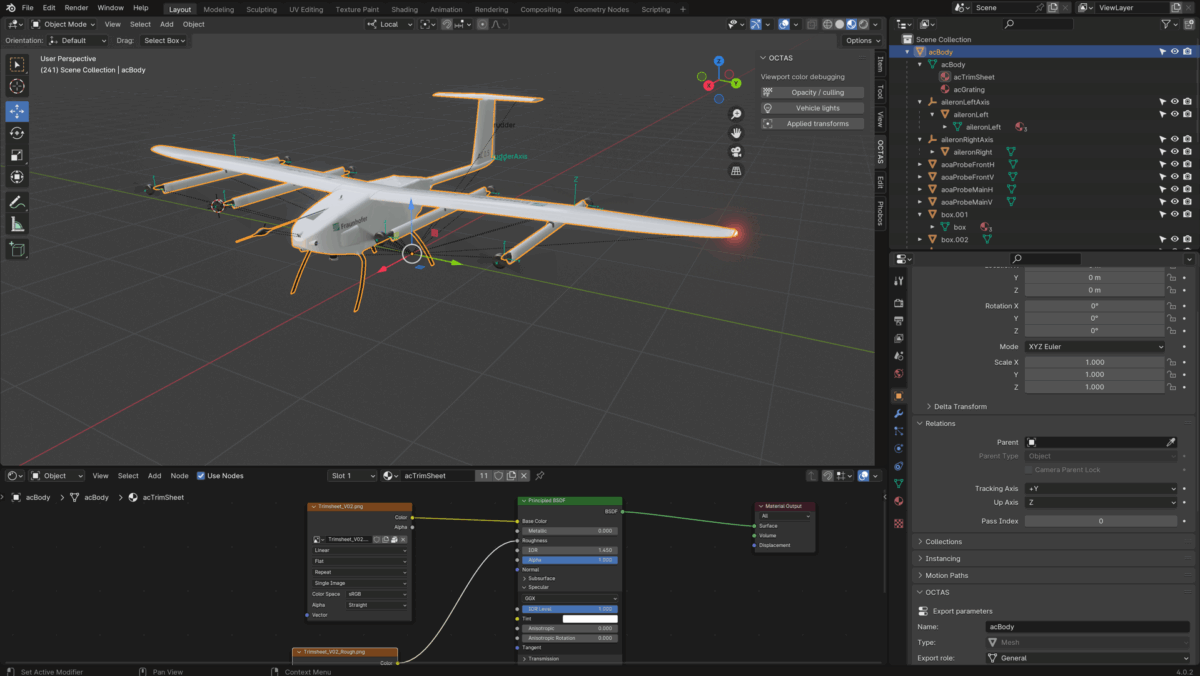Working principles
OCTAS® is a framework, written in C++, that allows composing simulations from plugins. These plugins are usually written in C++ as well, and can be distributed as compiled software.
Almost any aspect of a simulation can be added or modified through plugins, and consequently, almost any functionality within OCTAS® comes in the form of plugins. These plugins are joined by a core framework (the heart of OCTAS®), which is a very lightweight software designed to manage the cooperation of these plugins.
Why the plugin-based architecture?
OCTAS® is based on the idea that complex simulations must be composed from many parts, that these parts should play a dedicated role, and that they should be designed by experts in their respective field. These parts can then be used and re-used in many different use cases. The plugin-based architecture allows just this, by providing some very specific advantages:
For simulation users
For simulation developers
This modularity introduces flexibility, but also complexity. Therefore, OCTAS® is a very universal framework, but not necessarily the best solution for every use-case. If you have a simulation tool or toolchain for a specific purpose that fits your current and foreseeable requirements, switching to OCTAS® may provide little added value. If, in turn, your requirements change dynamically, if you need to be prepared to integrate new models or support new domains, OCTAS® is designed for you.
